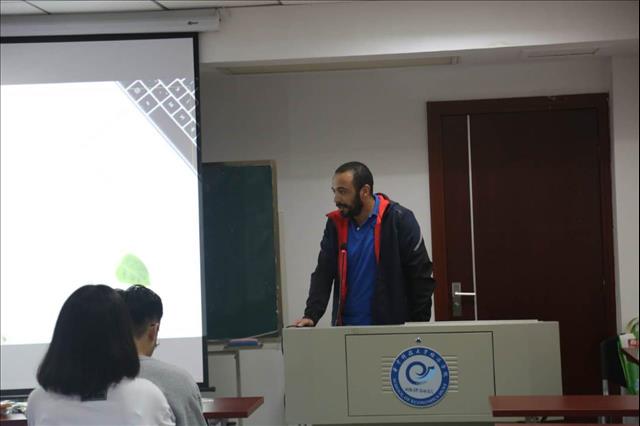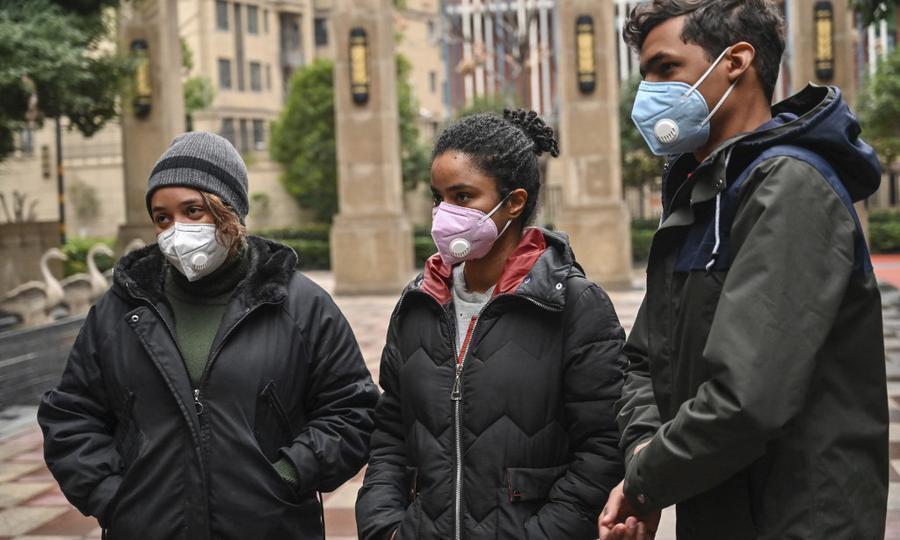
Lebanese student shuns evacuation from Wuhan
(MENAFN- Asia Times) Lebanese student Adham al-Sayed was completing the last four months of his PhD in Wuhan, China this week, when instead of a quiet Lunar New Year of thesis work, he found himself at the epicenter of the coronavirus outbreak, cordoned off in a province on lockdown.
Chinese authorities on January 22 ordered a "sanitary cordon" of Hubei province, shutting down transportation routes and effectively sealing off more than 50 million people, including thousands of foreign students studying in the capital city Wuhan.
"The first day was crazy. Everyone was going to the shops to stock up on supplies. We were afraid that the next day, there wouldn't be water," Sayed told Asia Times via Whatsapp call from his international students' dormitory.
Wednesday, Sayed says, was the first time he dared to leave his small apartment since the start of the province-wide quarantine, aimed at halting the spread of the epidemic, which has killed more than 100 people and infected thousands of others in China and beyond.
With a black protective mask on his face and hood over his head, the 32-year-old, one of thousands of foreign students in the city, filmed his venture into the streets of Wuhan on Facebook live.
While the streets appear mostly deserted, vegetable markets and pharmacies, he shows, are open and operating on normal business hours to serve the handful of people venturing out to re-stock.
Pointing to a four pack of 2-liter water bottles he has just purchased, he explains they are still being sold at their pre-epidemic price of ¥10 ($1.44).
"I wanted to kiss him, but I can't," he laughs, speaking of the mini-market owner through a protective mask.
In his subsequent interview with Asia Times, Sayed says he was "shocked" to find basic needs not only available, but at stable prices during such a crisis.
"If this was in Lebanon, he would have sold it for four times the price," he said, adding: "Of course the situation is not normal. But everything anyone needs is here."
‘Wuhan, forward!'Sayed says he is one of four Lebanese students in Wuhan, and that they have been receiving daily updates from their universities about the epidemic as well as guidance for movement during the crisis.
It is forbidden to leave ones' dorm room without a mask, and only for necessities, he notes. Universities where students eat at cafeterias have been delivering meals to the dorms, while students like him who cook at home are stocking up as needed.
"The Chinese authorities don't have a problem if [foreign students] evacuate but they prefer no one leaves, because it's better if we stay in place and not gather in groups," he adds.
University administrators say "whoever wants to evacuate Wuhan will be put in touch with their embassies. Till now, no one left."
Even if he is given the opportunity to leave Wuhan, the PhD student says he will stay, preferring to avoid airports while the epidemic is spreading, and – beyond that – and is committed to sticking it out in his home of the past four years.

Lebanese PhD student Adham al-Sayed gives a presentation at his university in Wuhan city, China.
"This isn't just a battle Wuhan or China is fighting, this is a battle for all of humanity and I'm proud to take part in it," he said.
In a goosebumps-inducing video posted by Sayed on Facebook, hundreds of students can be heard shouting to one another from the windows of their quarantined high-rise dormitories: "Wuhan, be strong. Wuhan, forward!"
For Sayed, the past four years studying alongside young people from around the world at Huazhong University of Science and Technology – one of China's top-10 higher academic institutes – have been the "best days of my life."
"I have not only a full scholarship from the university and Chinese government, but they give me a living stipend," he adds.
The Embassy of China in Lebanon, Sayed says, has checked up on the students multiple times since the province was put on lockdown. The Lebanese embassy in China, in contrast, was unresponsive for days, until Sayed's Arabic-language Facebook post calling attention to their existence went viral on social media.
Sayed received his bachelor's degree in applied mathematics at the public Lebanese University, but he found the options for graduate studies weak and limited, prompting him to travel to China for his PhD in quantitative economics.
He supports the ongoing uprising back home in Lebanon, seeing no future for himself in the country if there is no change to the current "backwards" system.
Lebanon is ruled by a handful of dynasties and political factions, which have over decades embedded themselves in its sectarian quota system to divvy up state resources and key sectors, maintaining power through patronage networks.
The Eastern Mediterranean nation's diaspora vastly outnumbers its local population of 4 million, with young people like Sayed leaving in the tens of thousands each year for better opportunities abroad.

Legal Disclaimer:
MENAFN provides the
information “as is” without warranty of any kind. We do not accept
any responsibility or liability for the accuracy, content, images,
videos, licenses, completeness, legality, or reliability of the information
contained in this article. If you have any complaints or copyright
issues related to this article, kindly contact the provider above.


















Comments
No comment